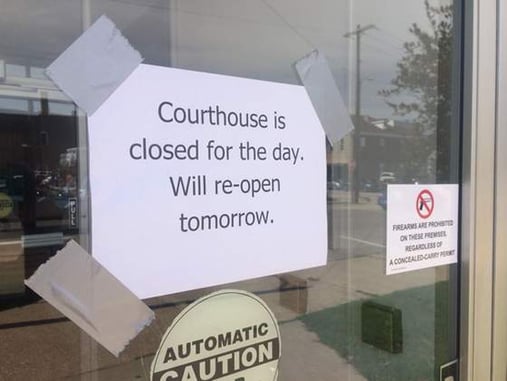We’ve covered multiple stories where either unarmed intruders or armed intruders got access to someone’s home before the homeowner was able to respond with deadly force. The real question is – do you issue a warning prior to shooting the suspects?
This is a hard question to answer as many concealed carriers and gun owners are moral, law-abiding citizens not looking to hurt anyone. And that’s encouraging, in a way. It’d be crazy to think that we lived in a society where everyone takes the “shoot first, ask questions later” approach.
There’s a simple truth about firearms and bullets – you can’t take back what exits the barrel. In a recent story we covered, there was a man and a boy breaking into a home when the homeowner decided to press the advantage and open fire. As it turned out, one of those intruders happened to be a teenager who came along for the ride – and it ended very poorly for him.
Should that homeowner have issued a warning first? No.
We also covered a very recent story where a boy was home alone when an armed intruder broke in through the back door. The boy got his father’s pistol and put four rounds into the intruder before police arrived.
Should the boy have given the intruder advanced notice? No.
Let’s flip the tables. Rewind to a scene a few months ago where a homeowner is broken in by three armed intruders and decides to take an unloaded shotgun to “scare” them off. They shot him and left the premises.
Should that homeowner have assumed his attackers would be scared by the sight of a firearm? No.
Avoid Giving Away Your Position
Giving a home intruder advanced warning of your presence and the fact that you are armed only serve to do two things: alert the intruder (who may be armed) of your location and allow him to defend against you.
Successful self-defense occurs quite easily when the attacker is unaware of your presence, your armament, and your ability. When you surrender the only thing you have working in your favor – the element of surprise – you are effectively evening the playing field.
When someone breaks in, assume nothing. Don’t assume he’s some innocent person who’s come upon bad times and just needs your television to pay the rent. Could that be the case? Sure. That intruder picked the wrong home.
Does that happen? Yes.
The problem is – you only know that after the fact. If you’re wrong, your life is in grave jeopardy immediately. If you’re right, you may have just saved some idiot’s life. That’s a hard call to make on those moral/ethical grounds.
This isn’t getting mugged on the street or watching a convenience store getting robbed – this is your home. You live here and you have to be comfortable here. If you let someone make a successful entrance of your home, you can bet if they live to talk about it they’ll be telling anyone who’s interested.
Avoid Warning Shots
Don’t do warning shots. There’s no reason for them. If you’re outnumbered and you want to let your intruders know that you mean business, apply judicious aiming to the first one that presents himself as a target. That’s warning enough. The rest will either form up their attack or beat feet. And if they decide to press their attack, at least there’s one fewer of them doing so.
Your main priorities in thwarting a home invasion is to secure your family, secure your firearms, and mount a reasonable defense of your property. Warning shots, giving advice to strangers wandering around your home, or anything in between is more likely to land you, your family, and your property in serious danger.








![[VIDEO] AR-15 That Takes Glock Magazines](https://imagedelivery.net/sbm_lYeJbALkepJgtmRD5w/concealednation.org/2017/06/ScreenHunter_910-Jun.-28-10.23.jpg/w=728,h=381)





